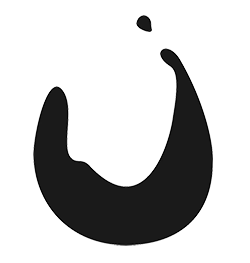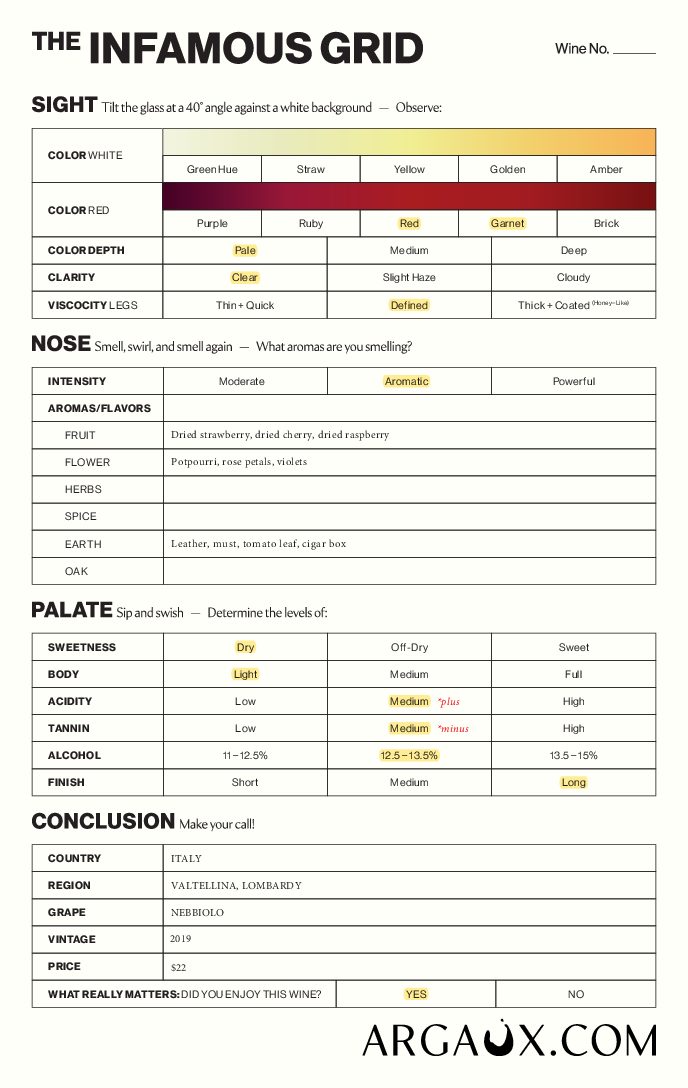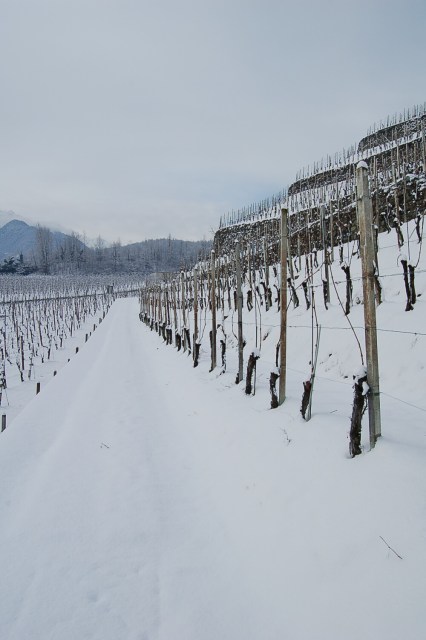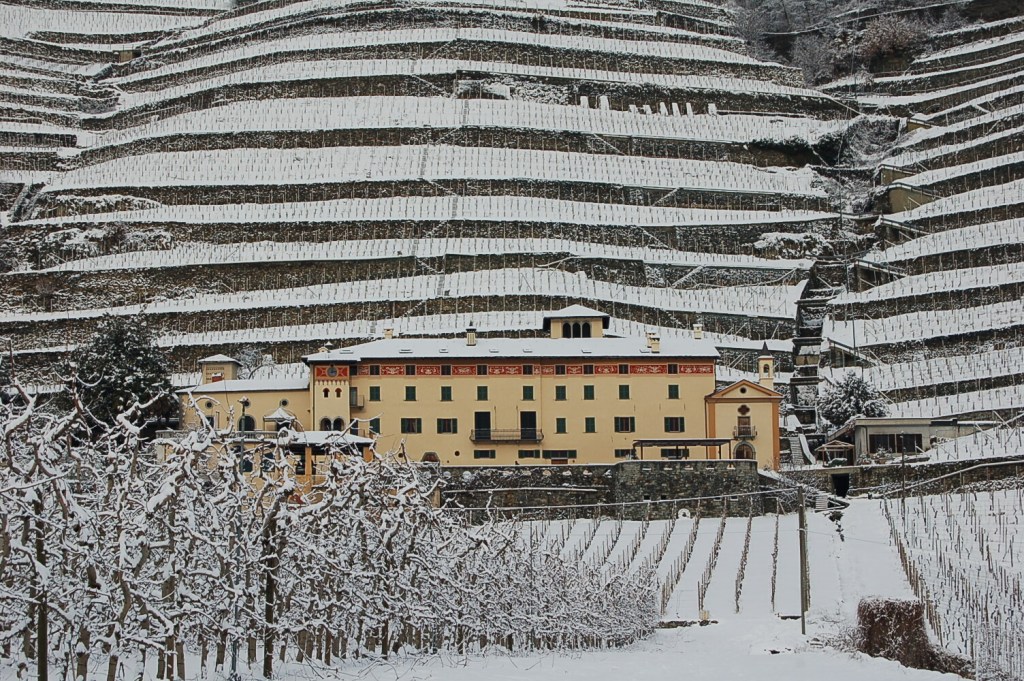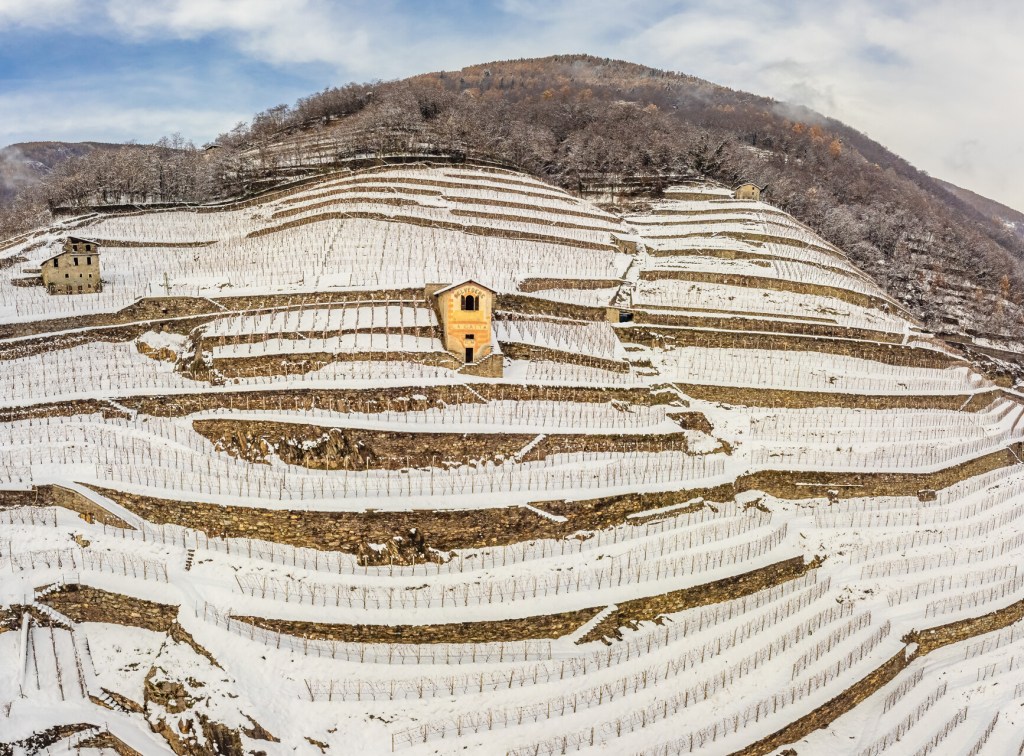2019 Casa Vinicola Triacca ‘Gaux Dopo’ Nebbiolo
This Alpine Nebbiolo is energetic, zippy, and remarkably fresh. The stainless steel fermentation maintains the wine’s bright fruit character, floral quality, and natural suppleness.
Sustainable farming practices and only 100 cases produced!
$22.00
Out of stock
Pairs with
The “La Gatta” estate was originally built in the 1500s as a Dominican monastery and was later purchased as a summer home for the aristocratic de Gatti family, from which the name derives. The Triacca family acquired the old monastery in 1969, which is surrounded by 13 hectares of vigorous vines grown on the steep hillsides of the Italian Alps. In 1987, Domenico Triacca acquired 2,000 square meters of vineyards in Valgella, one of the most highly sought after vineyard areas in Valtellina and built himself a small cellar to start producing and aging wines from his own vineyards. Today, Lucca Triacca runs the estate and is known as one of the most innovative Valtellina producers.
Valtellina lies in an Alpine valley in the northern part of the country in the Lombardy region. It actually forms part of the border between Italy and Switzerland and historically has been Swiss and Austrian territory before becoming part of Italy in 1859. The area benefits from a cool, mountain climate, though ‘La Breva,’ a gentle wind that originates over Lake Como, moves warm air into the valley and helps promote pollination in the spring. The vineyards lie on extremely steep slopes and tiny terraces (similar to the Mosel or Alto Adige) requiring it all to be worked by hand. Some suggest that Nebbiolo may have even originated in Valtellina! Today, it is known for its bright, cherry-scented Nebbiolo, known here as Chiavennasca (after the nearby town of Chiavenna).
“Nebbiolo from Valtellina has always been one of my favorite expressions of this grape. It’s Alpine wine; a much lighter and fresher version of your typical Nebbiolo from Piedmont that you might be more familiar with. They are high acid, food-friendly wines that are often significantly more affordable than your average Barolo. These wines are great with good company, a cheese & charcuterie plate, and some light pasta.” – Lexi Jones, Director of Imports
Related Items
-
2023 Domaine Garnier et Fils Chablis AOC
$36.00Chablis is a staple at Argaux. So when we decide to add a new one to the book, you better believe we have done our homework. This particular bottle was chosen after it won a blind tasting against 17 different bottles of Chablis. We invited our top Chablis clients to join us for the battle and this wine was voted #1. Enough said. It is a must-try.
Organic farming practices, native yeast fermentation, aged on the lees in stainless steel tanks for 11 months and filtered before bottling (no fining).
-
2022 Wonderland Project Atlas Peak Cabernet Sauvignon
$55.00This Cab is grown on a west-facing slope, above the fog line, on the northern ridge of the Atlas Peak AVA. The palate is dense and complex, marked by a long and polished finish. All we can say is, there’s a reason this graces the wine list at French Laundry.
Organic farming practices, unfined/unfiltered, vegan-friendly, and only 1,000 cases produced.
-
NV Sorelle Bronca Prosecco Treviso DOC ‘Modì’
$25.00‘Modì’ stands out from typical, mass-produced Prosecco because it’s handcrafted by the Bronca sisters from start to finish. With a focus on biodiversity and minimal intervention, this low-alcohol, bone-dry (zero sugar added) sparkler proves that exceptional quality doesn’t have to come at a high price—how refreshing!
Certified organic farming practices, hand-harvested, aged for 4 months on the lees and only 2,500 cases produced.
-
2022 Domaine Caroline Bellavoine Bourgogne Rouge
$35.00Caroline Bellavoine is the talk of the town. Her tiny production of old-vine Pinot Noir from the lesser-known Côtes du Couchois is pure, rustic, and deeply expressive of its unique terroir. It’s old-school Burgundy through and through – seriously complex and not for the faint of heart! Decant for 1 hour before enjoying.
Organic farming practices, native yeast fermentation, unfined/unfiltered, aged for 18 months in French oak barrels and only 150 cases produced annually.
